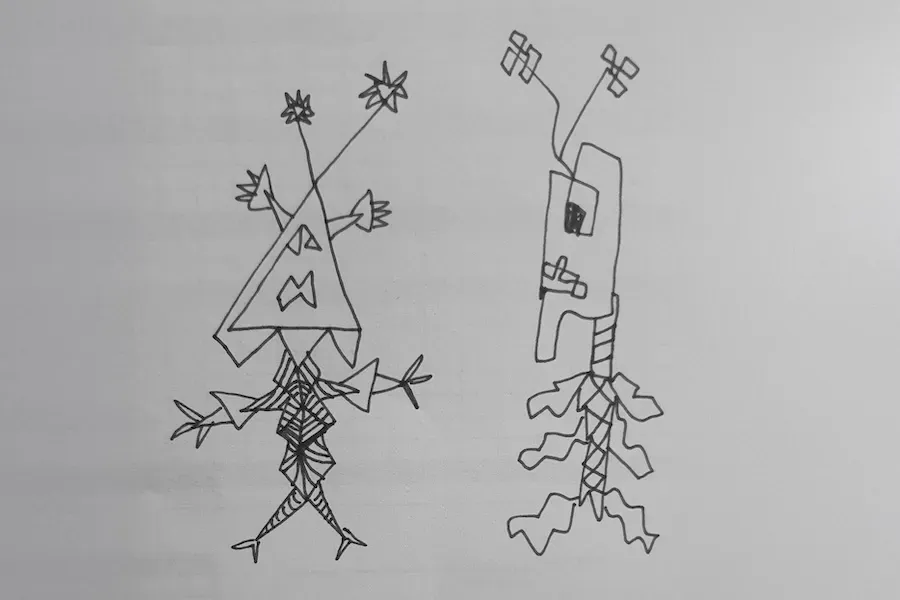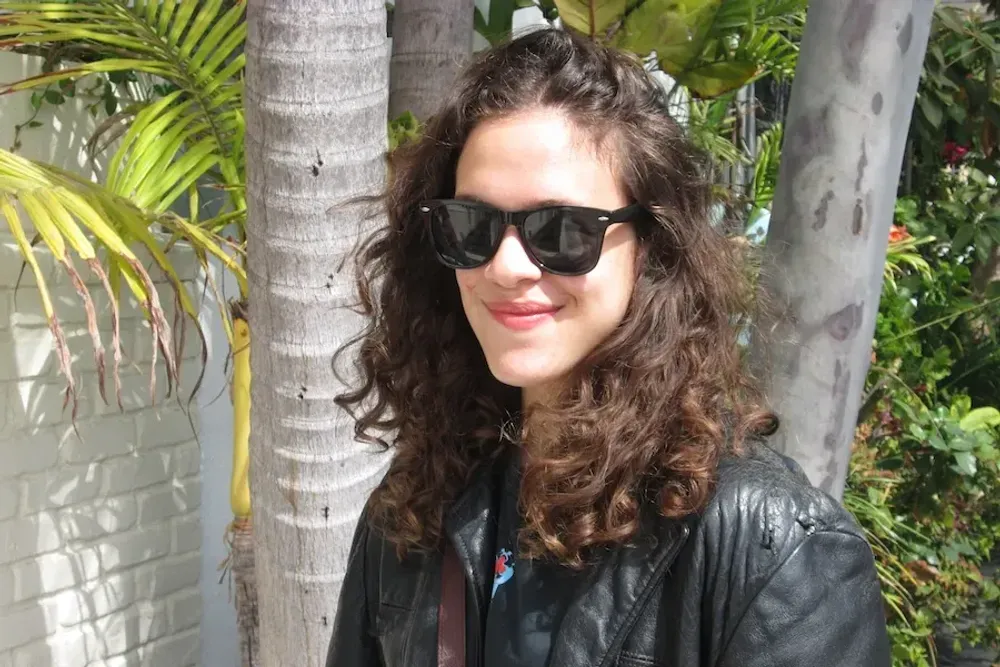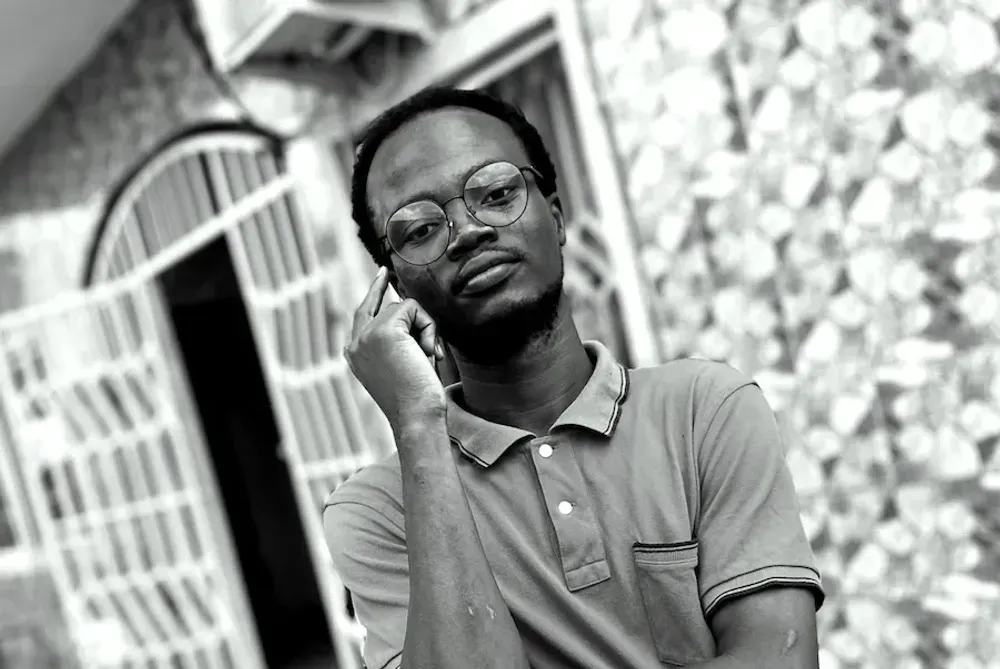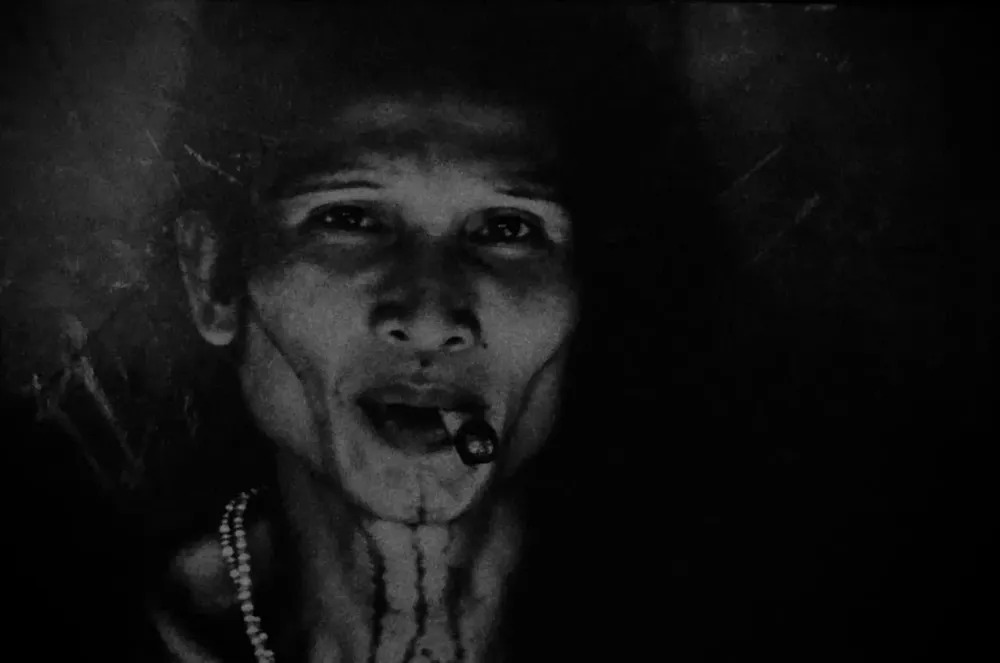Foreigner Before a Woman*
prose by Palipuff
The boys sat on the edge of the Brahmaputra river and kept glancing back at me, giggling in a language I could not understand.
I was caught between feelings I usually can’t name. That day, I could. To be fair, therapy has helped.
On one hand, I felt wonder watching the fishermen gather water hyacinth and silt, pushing the green to one side with their oar-like arms. In a single breath, they dove deep to gouge out silt. I imagined their wives transforming them into sturdy clay pots. At the same time, I felt aware of my body, which isn’t malleable.
What were the boys laughing about? My gaze flicked between the fishermen, the boys, and my own body. I observed their actions to my detriment. Every little twitch, stare, or whisper made me conscious of my body — a female-assigned at birth. Was the way my legs bent, and thighs parted as I sat on the ground, unfeminine? Or was it the shape of my genitals that disclosed my femininity even more? Was the way I dressed too masculine? Maybe it was never too deep, and they were simply envious of my sports shoes.
For a minute, I forgot that they were clad in jerseys and slippers, playing football with a semi-deflated ball. For a minute, my gender dysphoria clouded my diaspora privilege. My perfect English, my paler skin, and my western clothes made them call me a ‘foreigner’. For a minute, I believed I was a ‘foreigner’ — an alien in my own body.
I rode a bicycle on the dusty roads of Majuli island, the largest riverine island in the world, located in the northeastern Indian state of Assam. It is also home to the Mhising tribe, a Sino-Tibetan ethnic group. I reached their side of the shore on a makeshift raft that transported me and my bicycle across the river. The ingenuity of tribal people can put any urban dweller to shame, from their houses raised on stilts to their intricately crafted bamboo bridges.
During the 15 kilometres I rode around the village, I didn’t see a single woman (with an Asterix, like me and others who don’t fit the binary) on a bicycle. Perhaps that was the reason they looked at me with amazement. I blame many things on my move to Europe — my much paler skin and the words to describe the discomfort I feel in my body. Gender dysphoria wasn’t so jarringly evident to me before I knew how to name it.
As I sat in one of their homes at a later point, I could feel their gaze upon me. The Mhising women smiled at me and let out a familiar giggle among themselves, as if they knew my secrets.
Did they sense that I do not always feel like a woman?
That I usually hide my gender identity when I come home?
That I am scared of my family’s judgments if I tell them my pronouns?
That I travel to escape home?
That my breasts often feel like unnecessary appendages I wish I could detach?
Did they know the dysphoria gnawed tiny nibbles of my anxiety to feed itself?
“God made me so gora (fair-skinned) and them so kaala-maala (slang for Black), but their hearts are safed (white), and that’s all that matters”, the patriarch of the house proclaimed. I wanted to go off on a tangent about colorism, but I simply nodded in agreement with their generosity and impeccable hospitality. My jittery legs, after half a day of cycling, momentarily found a place to rest. How does one feel out of place, and yet have a sense of belonging at the same time, at the same place?
I sat on the bamboo floor contemplating, as the patriarch expressed his immense gratitude for my company. My body let its guard down, melting onto the floor as it relaxed. I tamed my dysphoria as I realized I was a ‘foreigner’ in my own country before I was a woman. And I’m not ashamed to admit I prefer it this way.
The bamboo was woven in a pattern so that one could see what lay beneath. Mostly plastic ruins of cups in which they drank Apong. Rice beer, or Apong, as they call it locally, is their cultural pride. Every family has their recipe for concocting it, they explained as I observed women work their hands into a rice and herb mixture to prepare a new batch. I was offered countless cups of Apong as a symbolic gesture as I passed through different nooks and corners of Majuli. Apong brought men and women together in celebration. All genders made merry at the same table.
The children of Majuli greeted me gleefully as I passed their beautiful bamboo homes on my way further. Were they also fascinated to see a girl on a bicycle? Or maybe they were just curious to see an unfamiliar face cruising in their village on a scorching day. Children can hardly differentiate between genders and the identities associated with them. They ran after me barefoot, excitement palpable with every step they sprang. Their faces were remnants of innocence that do not come easily in the daunting streets of Delhi, the city I grew up in.
My childhood was unlike theirs — luxurious, yet devoid of warmth. How easily they welcomed me into their homes! Would I ever invite a stranger off the street into my house? As a child, I was always apprehensive of unfamiliar faces walking through our doors. Years have only added to my skepticism. It’s a small miracle that I travel alone, after growing up in a body too often sexualized.
Yet, here I am, still existing.
Here I am, juggling my dysphoria as a diaspora.
Here I am, sitting among strangers, sharing a moment of quiet intoxication.
Here I am, confronting the hollow opacity of my concrete life.
Here I am, striking the bamboo tenderly as it reverberates with a sweet, familiar symphony.
Palipuff (she/they) considers themselves an emerging writer. As a migrant of color, they explore themes at the intersection of queerness, racism, and belonging through poetry, fiction, and creative nonfiction.





Comments